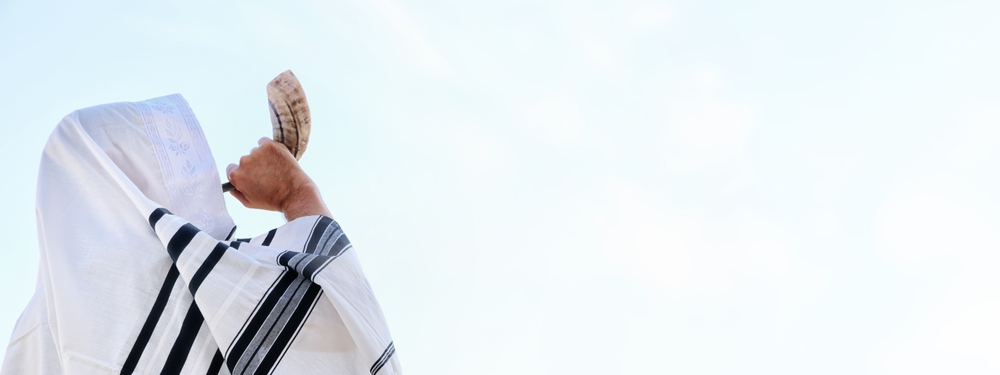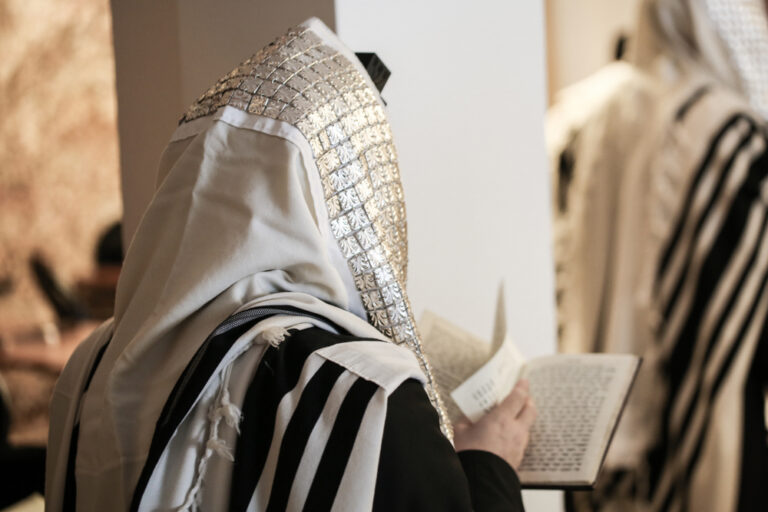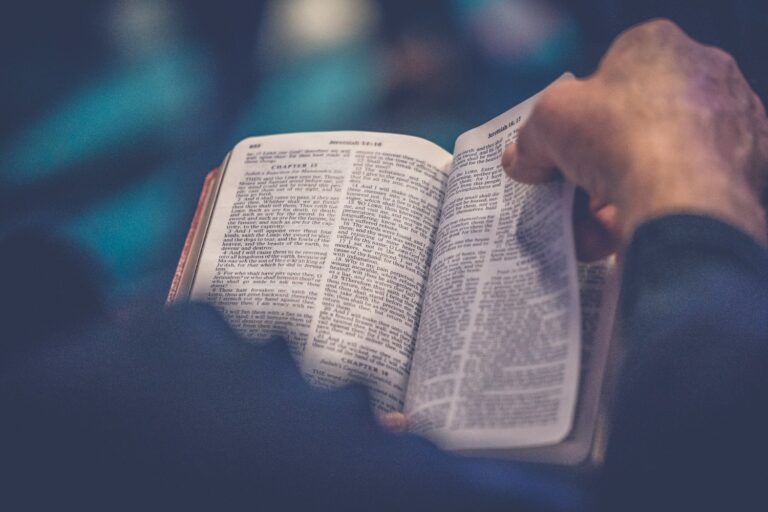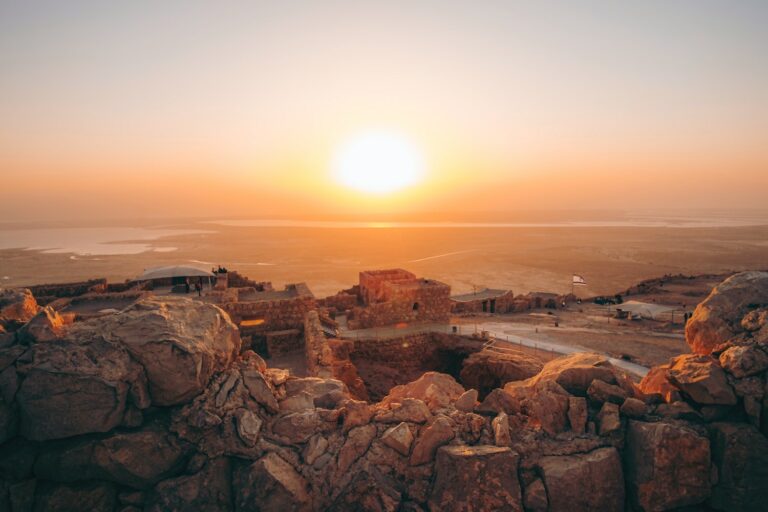First Published on: 8.9.2022
By Dr. Mojmir Kallus, ICEJ Vice President for International Affairs
What Does it Teach Christians?
In Genesis 1:14, God said, “Let there be lights in the firmament of the heavens to divide the day from the night; and let them be for signs (otot) and seasons (moadim), and for days and years.” One of these lights is the moon, and indeed the most important Jewish holidays, including Rosh HaShana, are determined by the moon. This is why we call them “movable feasts” because they fall each year on a different date according to our solar calendar.
The moon serves not only as a sign (ot) but also a moed – a Hebrew word best translated as “appointed time”. This is the time God himself determined for an appointment with mankind. And what powerful appointments they are: Just think of it – the Exodus from Egypt, the giving of the Torah to Moses on Mount Sinai, and Jesus dying on the cross: all of these seminal events happened exactly on the days appointed by God.
Now the significance of every Rosh Chodesh is mainly to determine the beginning of the month when the new moon appears. Without it, we could not determine the date of the full moon, which marks the beginning of Passover and Succot.
Every month, Rosh Chodesh is a time of drawing near to God, of blowing the trumpet, a time of gladness and joy. The Scripture says in Numbers 10:10 that it shall be a memorial (zikaron) for you. It means remembering the past so as to learn a lesson for today. At Rosh HaShana, the beginning of the Hebrew month of Tishri, this theme comes out prominently: the day is also called Yom ha Zikaron, the Day of Remembrance, and biblically the Day of Trumpets, or more precisely, the Day of Blowing on the Shofar (Yom Teruah).
It is a celebration with mixed feelings: the joy of the Feast of the new moon with the solemn tones of the blowing of the shofar. In the case of Rosh HaShana, it marks the beginning of the ten “Days of Awe” (yamim noraim), which lead up to Yom Kippur. We celebrate the Lord as the Creator of the universe and at the same time ask for forgiveness and try to learn the lessons from the past. And we cry out for mercy. And then, on the full moon, on the 15th of Tishri, the most joyful of all Jewish festivals starts – Succot or the Feast of Tabernacles.
Is it a New Year?
Does this month, packed with significant moadim, appointments, mark the beginning of the year or not? The first of Tishri is considered the beginning of the year, Rosh HaShana, but Tishri is called the seventh month. How should we understand this?
We understand that Tishri marks the beginning of the year, by imagining the agricultural cycle in ancient Israel. Every holiday has both a spiritual element and an agricultural one: Pesach (Passover) marks the liberation from the slavery of Egypt through the blood of the lamb but also the first fruits of barley; Shavuot (Feast of Weeks or Pentecost) commemorates the giving of the Torah and also the first harvest. And at the Feast of Tabernacles the Jews remember how they wandered in booths in the desert, but they also celebrate the final harvest, the ingathering of everything that grew and ripened during the long summer months.
According to this agricultural calendar, the biblical year indeed begins in Tishri because this is the month, in Israel, when the winter rainy season is about to begin. It is the period that determines the fate of the entire region for the rest of the year. If the early rains fail to come, the nation faces drought. And drought is an occurrence even in our time of technology. We do not have control over climate.
All this underlines our complete dependency on God and His full sovereignty. We have no control over the future, but God has. Therefore, the call to repentance, to return to the Lord with all our hearts and minds is in order.
And this is very much the message of the month of Tishri and the autumn holidays. The Bible commands a special month of appointed times before the onset of the new agricultural year. It is to reaffirm our belief that the Lord is the sole force behind the fate of the coming season. We do not look to nature, nor do we let the perceived changes of climate control us. We put our trust in God who decides how the rainy season will unfold.
Modern technology has somewhat diminished our dependency upon the early winter rains, but this topic is still followed in Israel with great care. The level of the Kinneret is often featured as an important news item in the media. Here in Israel, the message does not escape our attention.
So, it is in the month of Tishri when prayers begin for rain, that there is an awareness of dependency on God. Trust in Him permeates the whole holiday season: During Succot, in order to remember God’s protection in the wilderness journey, people are commanded to get out of their comfortable dwellings, be exposed to the elements, and trust in God rather than man-made protection. We cannot rely on our real estate, our money, even on our skills or health. We are fully dependent on God.
The Sound of the Shofar is a wake-up call
Let us turn now to the holiday known as Rosh HaShana, and see what we can learn from the Scriptures. First of all, the Bible doesn’t call it the NEW YEAR, rather just the first day of the SEVENTH month. The only commandment is to refrain from work and blow the trumpet.
The defining passage is found in Numbers 29:1-2: “And in the seventh month, on the first day of the month, you shall have a holy convocation. You shall do no customary work. For you it is a day of blowing the shofar (Yom Teruah)…”
Another passage is found in Leviticus 23:23-25: Then the Lord spoke to Moses, saying, “Speak to the children of Israel, saying: ‘In the seventh month, on the first day of the month, you shall have a sabbath-rest, a memorial of blowing of shofar (Zichron Teruah), a holy convocation. You shall do no customary work on it; and you shall offer an offering made by fire to the Lord.’”
So, the main commandment is to blow the trumpet, or shofar (the word teruah implies the sound of the shofar). You remember that the shofar is sounded already on every new moon, and the aspect remembering is also present every month. But in the seventh month, everything is more intense. The sound of the shofar serves as a wake-up call.
The medieval Jewish scholar Maimonides, writes in his Laws of Repentance, 3:4: “Although the blowing of the Shofar on Rosh HaShana is a chok [a law issued without an accompanying reason], there is also a remez [a hint of meaning] within it, as if it were saying, ‘awake, sleeping ones, from your slumber, and those napping arise from your naps, examine your actions and return sincerely to God, and remember your Creator.’”
We can find an interesting parallel in the New Testament. Paul, in writing to Ephesians, uses a very similar exhortation: “For you were once darkness, but now you are light in the Lord. Walk as children of light (for the fruit of the Spirit is in all goodness, righteousness, and truth), finding out what is acceptable to the Lord. And have no fellowship with the unfruitful works of darkness, but rather expose them. For it is shameful even to speak of those things which are done by them in secret. But all things that are exposed are made manifest by the light, for whatever makes manifest is light. Therefore He says: “Awake, you who sleep, arise from the dead, and Christ will give you light.” (Ephesians 5:8-14)
You see, the context is repentance. And it is the sound of the shofar which is saying: ‘Awake from your slumber, cast away darkness, and walk in light.’
Psalm 89:15 says in English, “Blessed are the people who know the joyful sound! They walk, O Lord, in the light of Your countenance.”
In Hebrew though, it actually says, “blessed are the people who know the sound of teruah”, or the sound of the shofar. In other words, there is blessing in heeding the call for repentance. These are the people who walk in the light of His countenance. This is exactly what John says, in 1 John 1:5-8: “… God is light and in Him is no darkness at all. If we say that we have fellowship with Him, and walk in darkness, we lie and do not practice the truth. But if we walk in the light as He is in the light, we have fellowship with one another, and the blood of Jesus Christ His Son cleanses us from all sin.”
The sound of teruah is a wake-up call, inviting us to leave darkness and walk in His light. We were once darkness, but now we are light and should walk as children of light. Use this opportunity and ask God to show us if there are areas in which we still walk in darkness and need to repent. Repentance in Hebrew is t’shuva, and it literally means “return, come back”. Change the direction of your walk, turn around.
The Sound of the Shofar Speaks of Freedom
The Jewish sages say that many of the laws concerning blowing of the shofar are derived from the laws of the Jubilee Year.
Leviticus 25:8-9: And you shall count seven sabbaths of years for yourself, seven times seven years; and the time of the seven sabbaths of years shall be to you forty-nine years. Then you shall cause the shofar of the Jubilee to sound on the tenth day of the seventh month; on the Day of Atonement you shall make the shofar to sound throughout all your land.
In the 50th year, all land returned to the family that originally inherited it, and slaves went free. So, we see that the call of the shofar is connected to the shofar blast of the Jubilee, which signified freedom.
What then is the connection between repentance and the Jubilee? When we repent, the power of sin is broken and we enter into true freedom.
Jesus said in John 8:32 “If you abide in My word, you are My disciples indeed. And you shall know the truth, and the truth shall make you free.”
God freed the Jews from slavery in Egypt and brought them to Mt. Sinai, where He gave them His word, which has the power to set free. And ultimately, the Word became flesh and dwelt among us. Jesus did what we could never do in our own strength. Now we can experience His liberating power. When the Son sets you free, you are free indeed (John 8:36).
Jesus referenced the Jubilee when He introduced His ministry in the synagogue in Nazareth, when He quoted Isaiah: “The Spirit of the Lord is upon Me, because He has anointed Me, to preach the gospel to the poor; He has sent Me to heal the brokenhearted, to proclaim liberty to the captives and recovery of sight to the blind, to set at liberty those who are oppressed; to proclaim the acceptable year of the Lord…And He began to say to them, Today this Scripture is fulfilled in your hearing.” (Luke 4:18-21)
So, when you hear the shofar, remember that it is calling you to the freedom in Jesus.
The Sound of the Shofar is Prophetic
The shofar blast is also related to God’s judgment, as it will be revealed in the last days, and also to the restoration and regathering of Israel.
Zechariah 9:9, 14 says: “Rejoice greatly, O daughter of Zion! Shout, O daughter of Jerusalem! Behold, your King is coming to you; He is just and having salvation, lowly and riding on a donkey, a colt, the foal of a donkey… Then the Lord will be seen over them, and His arrow will go forth like lightning. The Lord God will blow the shofar and go with whirlwinds from the south.”
The blowing of the shofar is clearly connected with the salvation of Israel, and the coming of their King
Images courtesy of Shutterstock




